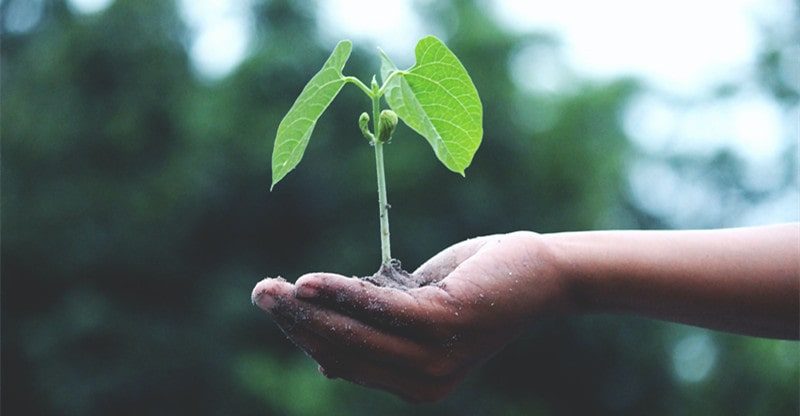Ideas To Help Your Community Become More Sustainable
All of us can reap the rewards of living in a more sustainable society, but what steps can we take to create cleaner communities? Making better choices in our own homes is the best way to start. From there, you can help turn your community into a more environmentally friendly place to live.
The Benefits of Sustainable Choices
Reducing your carbon footprint benefits the planet, but making greener choices can help you in other ways too. For example, reducing your use of plastic and products that contain harmful ingredients could improve your health. You may even be able to breathe easier when you remove chemicals from your home.
Green choices can also save you money. You can reduce the cost of utilities including electric, gas, and water bills. You may be eligible for tax credits such as renewable home energy incentives in certain states.
Let’s take a look at some of the things you can do to make more sustainable choices around your home.
Choosing Eco-Friendly Living Habits
The easiest way to start is by changing your habits and making small, ecologically friendly choices. Save water by reducing the length of your shower and avoiding baths. Stop running water needlessly when you brush your teeth and purchase a bamboo toothbrush to eliminate more plastic in your home.
When you’re shopping, make eco-friendly choices. Ditch plastic bags for grocery shopping and replace them with paper or reusable shopping bags that you clean regularly. Use digital coupons and receipts whenever these options are available.
Another way to green your home that most people don’t think of is by using more sustainable cleaning products. Cleaners that contain harsh chemicals pollute the air and can irritate your skin and your lungs. Make do-it-yourself cleaning solutions with vinegar, lemon, and baking soda to save money rather than using costly natural cleaning products.
Making Sustainable Choices in Your Home
There are plenty of affordable upgrades you can do to make your house more eco-friendly. Here are some ideas:
- Replace anything that uses water, including faucets and toilets, with options that reduce waste, such as a low-flow showerhead.
- Buy energy saver appliances.
- In your kitchen, replace plastic containers and utensils with glass or stainless steel products.
- Replace standard light bulbs with more efficient CFL or LED bulbs.
- Embrace simple habits, such as moderating your heat and cooling systems with timers to save energy.
If you are a homeowner, you know that caring for your yard uses a great deal of water. There are systems that you can purchase to recycle the water for lawn care. You can also do functional landscaping that reduces the size of your lawn while creating a more efficient water system. Talk to local gardening experts to learn more.
Finally, if you are upgrading or remodeling, you can select greener choices, such as using solar power to energize your home. Adding the right insulation will also help save money and reduce energy waste.
Sharing Sustainable Tips With Your Community
Making these changes is a great start, but how can you help improve the rest of your community? Spreading these ideas begins with being a good neighbor.
It’s wise to make sure your own home is secure and keep a watchful eye out to help the people around you stay safe, which is a great way to become a valued resident. Looking out for suspicious activity, returning wind-blown garbage pails, and helping with things like snow removal will help build trust among the people on your block. You may be able to carpool together as well to save on gas money, reduce pollution, and build friendships!
Tell your neighbors how choosing more sustainable practices has saved you money. If you know of local tax credits for green practices, the other families on your block would want to know too. You can even host a party to share your eco-friendly tips and tools.
You can also share information if you are part of a homeowners’ association. Be sure to get involved with your HOA by attending meetings and events, volunteering to help, or even signing up for open positions. As a reliable member, you can recommend initiatives or host events that show people how to live more sustainable lives.
Getting More Involved Locally
It’s also a good idea to consider getting involved on a broader level. This includes hosting events or sharing information with local schools, libraries, and community organizations. Attending and speaking up at school board meetings and neighborhood associations beforehand will help you be more visible to your town’s leadership, making them more open to sustainable ideas that you suggest.
If there is an environmental issue in your community, such as local wildlife at risk, do some research on the problem. Then seek out local conservation or environmental organizations to see how you can help. You may want to volunteer by informing your neighbors, town officials, or local press to try to resolve the issues.
Another important way to make your area more eco-friendly is by supporting local businesses that use sustainable initiatives or practices, or that sell environmentally friendly products or solutions. Acknowledging their social responsibility builds their success and improves your community as a whole. This can include businesses such as farmer’s markets, natural lawn care or pest control providers, and home cleaning services that use non-toxic products.
Helping your community to become more sustainable starts in your home and on your street. When you’re a good neighbor who takes social responsibility for greening your community, people will start to begin an interest in sustainable living. Improving the planet is everyone’s obligation but we can all help each other to achieve that goal.



